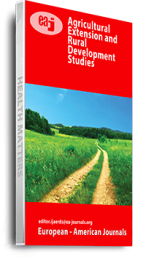This article was conducted at South Darfur State, Sudan, to evaluate the internally displaced persons (IDP’s) economic condition in displacement camps. It was aimed to illustrate how IDP’s economic condition was positively or negatively affected by recent Darfur conflict, through determining the economic activities that adopted by IDPs. A random sample consisted of 384 individuals was performed to collect the primary data through questionnaire, as the main data collection tool. The collected data were analyzed by frequency distribution and Chi-square test, using SPSS program. The study raised numbers of results such as; the majority (71.4%) of respondents have access to work, but most (63.4%) of them had impermanent jobs. Agriculture was the public economic activity for 56.2% of respondents. Most (70.7%) of respondents depend on private work for earning income, and 15.4% have official governmental jobs. Private work includes; agriculture, trade, Craft work and domestic work, respectively. Most (85.2%) of respondents lived under 1000 SDG income. There were significant relationships between joining to economic activities and personal characteristics, including; sex, age, education and marital status. To reduce the IDP’s economic vulnerability, it recommended that the implementation of educational and training activities is necessary for improving IDP’s capacity building to ensure economic diversification, and improving agricultural development by Performing effective agricultural development programs including; agricultural inputs, finance, extension work, to enhance effective joining to market production
Keywords: Displacement, Income Generating Activities, economic activities, personal characteristics

